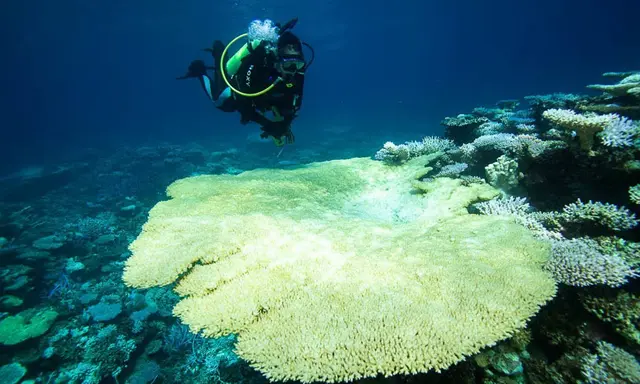Australian researchers have discovered several places across the globe where there were more fish on coral reefs than expected.
Researchers from James Cook University in Queensland conducted over 6,000 reef surveys in 46 countries and discovered 15 'bright spots.'
"Given the widespread depletion of coral reef fisheries globally, we were really excited to find these bright spots that were fairing much better than we anticipated," lead author Professor Josh Cinner from the ARC Centre of Excellence for Coral Reef Studies at James Cook University said.
"These 'bright spots' are reefs with more fish than expected based on their exposure to pressures like human population, poverty, and unfavorable environmental conditions."
He noted bright spots were not necessarily pristine reefs, but rather reefs that have more fish than they should, given the pressures they face.
"We wanted to know why these reefs could 'punch above their weight' so to speak, and whether there are lessons we can learn about how to avoid the degradation often associated with overfishing."
The research also uncovered 35 'dark spots,' namely reefs with fish stocks in worse shape than expected.
"Dark spots also had a few defining characteristics; they were subject to intensive netting activities and there was easy access to freezers so people could stockpile fish to send to the market," co-author of the study Dr. Christina Hicks said.
The researched discovered bright spots were typically found in the Pacific Ocean in places like the Solomon Islands, parts of Indonesia, Papua New Guinea and Kiribati, while dark spots were more globally distributed and found in every major ocean basin.
(APD)
 简体中文
简体中文

